Organismal and cell logistics
09:00
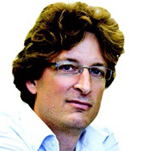
Cornelius Gross
EMBL, Monterotondo, Italy
The logic of fear: neural circuits underlying instinctive behavior
PhD 1995, Yale University.
Postdoctoral research at Columbia University.
Group leader at EMBL Monterotondo since 2003.
Deputy Head of Outstation and Senior Scientist since 2009.
ERC Advanced Investigator.
09:25
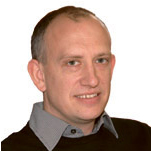
Paul Heppenstall
EMBL Monterotondo, Italy
Understanding the molecular basis of touch sensation
PhD 1997, University of Edinburgh.
Postdoctoral work at the Max Delbrück Centrum,
Berlin.
Junior Professor at the Charité, Berlin.
Group leader at EMBL Monterotondo since 2008.
Group leader in the Molecular Medicine Partnership Unit.
09:50
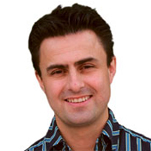
Martin Jechlinger
EMBL, Monterotondo, Italy
Escaping Oncogene Addiction: Metabolic Features of Residual Cancer Cells
PhD 2002, Institute of Molecular Pathology (IMP) Vienna.
Postdoctoral research at Memorial Sloan-Kettering Cancer Center (MSKCC) New York.
Group leader at EMBL Monterotondo since 2010.
Group leader at EMBL Heidelberg since 2015.
10:15
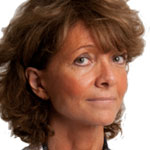
Elisabetta Dejana
IFOM, Milan, Italy
The structure and function of endothelial cell to cell junctions
Elisabetta Dejana obtained her University degree in Biological Sciences at the University of Bologna, Italy. She worked in Canada, at McMaster University, Toronto. After that period she moved back to Italy where she built the Vascular Biology lab at Mario Negri Institute. She worked at Harvard Medical School, Brigham and Women' Hospital, Boston; Hopital Bicetre in Paris; Hadassah Medical School in Jerusalem and Weitzman Institute in Rehovot, Israel. From 1993 to 96 she worked in Grenoble, France directing an INSERM Unit and CEA Laboratory at the Center of Nuclear Energy (CENG). She then returned to Milan to take part in the creation of IFOM Foundation. Today at IFOM she directs a research laboratory dedicated to the study of angiogenesis and its relevance in pathology. In addition to her research activity, she teaches as full professor of General Pathology at the University of Milan, School of Sciences. She is a member of the Editorial Board of several international scientific Journals and Committees and she has won several international prizes for her research career. She has published more than 280 papers in referenced international journals.
10:35
Coffee break
11:00
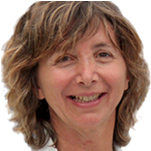
Simona Polo
IFOM, Milan, Italy
Insights into HECT Ub ligases regulation and catalysis
Simona Polo directs the Ubiquitin and Signal Transduction research program at IFOM, Milan, since 2005.
She graduated cum laude in 1991 and received her Ph.D. in Genetics at the University of Milan, in 2005 where she worked with Prof. Gianni Deho' on bacteriophages and Streptomyces biology.
From 1996 to 1999 she conducted postdoctoral research at San Raffaele scientific Institute under the guidance of Prof. Paolo Lusso studying the chemokine receptor CCR5, responsible for the HIV entry. In 1999 she joined the group of Prof. Pier Paolo Di Fiore at the European Institute of Oncology (IEO) Milan as staff scientist, acquiring a strong expertise in the field of endocytosis.
In 2005, she left the IEO, accepting the opportunity to develop her own line of research at IFOM studying ubiquitin as a signaling device with a particular focus on cancer biology. In recognition of her studies she received the EMBO Young Investigator award in 2009.
11:20
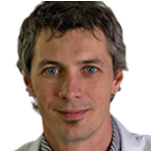
Thomas Vaccari
IFOM, Milan,Italy
A novel function of the SNARE protein Snap29 in cell division
Thomas Vaccari obtained his B.Sc. in Biology at the University of Milan, Italy. He worked in Anne Ephrussi’s group at the EMBL where he obtained is Ph.D. in 2003. He then joined the lab of David Bilder at the University of California, Berkeley, where he identified a novel class of tumor suppression genes in Drosophila. In 2009, he established his lab at IFOM in Milan, where he studies how endocytosis controls signaling and tumor suppression.
11:40
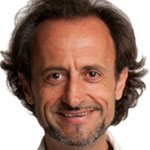
Giorgio Scita
IFOM, Milan, Italy
Endocytic control of tumor cell migration
A cell biologist and expert on the dynamics of cell movement, Giorgio Scita directs the Mechanisms of Tumor Cell Migration research unit at IFOM. Born in 1963 near Parma, Scita enrolled in the Faculty of Biology at the University of Parma in 1982 with a precise intention: to study animal behavior alongside the famous Italian ethologist Danilo Mainardi. However, this was the time of the great explosion of molecular biology: "They began to identify and clone genes, to move from genes to proteins, to study their functions. It was impossible not to be fascinated." Therefore, Scita focused on the behavior of proteins, graduating in 1986 with a thesis on the biochemistry of the metabolism of one of the most powerful antioxidants that protect cells from damage induced by free radicals: vitamin A. In 1989, at the same University, he specialized in Chemistry and Food Technology and then left for the United States. There, in the laboratories of the Department of Nutritional Sciences at the University of California at Berkeley, he continued his studies on the effects of vitamin A and its derivatives - particularly beta-carotene and retinoic acid - on cell adhesion. It was becoming increasingly apparent at the time that retinoic acid functions as a powerful molecular signal capable of influencing gene expression. Scita discovered that the cellular response to this signal could be altered following the activation of genes that promote tumor transformation. To study these issues further, he left California in 1994 for Maryland to work in the Laboratory of Cellular Carcinogenesis and Tumor Promotion at the National Cancer Institute in Bethesda. Meanwhile, in Milan, Italy a project to create a new organization was taking shape: a Department of Experimental Oncology at the European Institute of Oncology (IEO). Two scientists, in particular, were advocates: Pier Giuseppe Pelicci and Pier Paolo Di Fiore. Attracted by the idea of studying beside them, Scita returned to Italy in 1995 to work on the staff of Pier Paolo Di Fiore. In 2001, he left the IEO, accepting the offer by IFOM to develop his own line of research there. He established a new group to investigate how cancer cells acquire mobility, a feature essential for the spread of cancer in the body. This gave rise to the Mechanisms of Tumor Cell Migration research program at IFOM. In 2006, after five years of significant contributions to the advancement of scientific knowledge, making important discoveries in his field, was confirmed as director of research at IFOM. In the same year, he became Associate Professor of General Pathology in the Faculty of Medicine at the University of Milan. He is also associated with various studies that deepen our understanding of the mechanisms by which cells perceive their external environments and transduce signals, in response to which they change their behavior, especially that of migration. In particular, he was responsible for the discovery that highlighted the fundamental connection between tumor cell mobility and the cellular process of endocytosis, traditionally considered to act in quite different cellular events. Author of over 80 publications, Scita is among the more productive and cited Italian scientists.
12:00
Lunch break
Cell plasticity
14:00
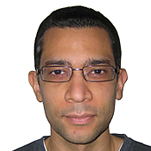
Christophe Lancrin
EMBL, Monterotondo, Italy
Cellular heterogeneity at the onset of blood cell development
PhD 2003, Université Pierre et Marie Curie (Paris VI), Paris, France.
Postdoctoral research at the Paterson Institute for Cancer Research, Manchester, United Kingdom.
Group Leader at EMBL since January 2011.
14:25
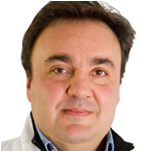
Vincenzo Costanzo
IFOM, Milan, Italy
DNA replication and stem cells: novel insights from a vertebrate cell free system
Vincenzo Costanzo graduated in Medicine and obtained his PhD in Molecular Biology at the University of Naples Federico II in 2002. He performed his postdoctoral studies at Columbia University with Jean Gautier, where he developed in vitro systems to study the biochemistry of DNA damage checkpoints. In 2004 he was recruited as group leader at the London Research Institute, Clare Hall Laboratories where he directed the Genome Stability Unit. In 2007 he was nominated Lister fellow and EMBO young investigator and was awarded the European Research Council start up grant. In 2010 he was promoted to tenured scientist. In 2013 he will relocate to IFOM to lead the Vertebrate Genome Stability laboratory. His studies focus on DNA metabolism and DNA damage response in vertebrate organisms.
14:50
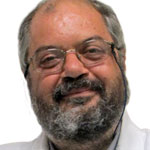
Pier Paolo Di Fiore
IFOM, Milan, Italy
Connecting the machineries of asymmetric division and tumor suppression in mammary stem cells
Prof. Pier Paolo Di Fiore is the head of a basic research group at IFOM focusing on "Endocytosis and Cancer" and leads the Molecular Medicine for Care translational research program at the European Institute of Oncology, a leading cancer care center in Milan (Italy). He is Full Professor of General Pathology at Milan University, and one of the founders of the European School of Medicine, which provides Ph.D. programs in the biomedical field. Di Fiore's work in the molecular understanding of cancer is widely recognized, as witnessed by his publication of more than 220 papers that have been cited more than 26,000 times. He has received numerous international awards; he is an EMBO member, a Senior Editor of the Journal of Cell Biology, and associate editor of Cell.
